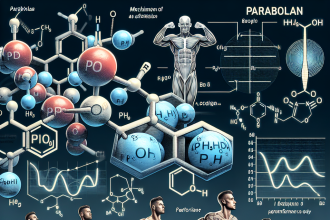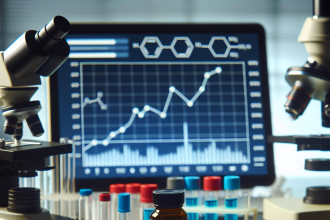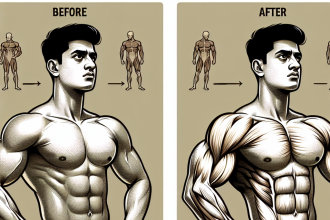-
Table of Contents
The Importance of Testosterone in Sports: Effects and Controversies
Testosterone is a hormone that plays a crucial role in the development and maintenance of male characteristics. It is also known to have significant effects on athletic performance, making it a highly controversial topic in the world of sports. While testosterone is naturally produced in the body, it can also be artificially manipulated through the use of performance-enhancing drugs. In this article, we will explore the importance of testosterone in sports, its effects on athletic performance, and the controversies surrounding its use.
The Role of Testosterone in Sports
Testosterone is primarily produced in the testes in males and in smaller amounts in the ovaries and adrenal glands in females. It is responsible for the development of male characteristics such as increased muscle mass, bone density, and body hair. In sports, testosterone is known to have a significant impact on athletic performance, particularly in activities that require strength and power.
Studies have shown that testosterone levels are positively correlated with muscle mass and strength, making it a key factor in athletic performance. In fact, research has found that testosterone levels can increase by up to 20% during and after exercise, leading to improved muscle protein synthesis and muscle growth (Vingren et al. 2010). This makes testosterone a highly sought-after hormone for athletes looking to enhance their performance.
Effects of Testosterone on Athletic Performance
The effects of testosterone on athletic performance are well-documented and have been a topic of debate for many years. Some of the key effects of testosterone on athletic performance include:
- Increased Muscle Mass: As mentioned earlier, testosterone is known to increase muscle mass and strength, making it a popular choice among athletes looking to improve their physical performance.
- Improved Recovery: Testosterone has been shown to aid in muscle recovery after intense exercise, allowing athletes to train harder and more frequently.
- Enhanced Endurance: Testosterone has also been linked to improved endurance, allowing athletes to perform at a higher level for longer periods of time.
- Better Mood and Motivation: Testosterone has been found to have a positive impact on mood and motivation, which can be beneficial for athletes during training and competition.
These effects make testosterone a highly desirable hormone for athletes, especially in sports where strength and power are crucial for success.
Controversies Surrounding Testosterone Use in Sports
While testosterone can have significant benefits for athletic performance, its use in sports has been a topic of controversy for many years. The main concern is the use of performance-enhancing drugs, such as anabolic steroids, to artificially increase testosterone levels in the body. This not only goes against the principles of fair play and sportsmanship but also poses serious health risks for athletes.
Studies have shown that the use of anabolic steroids can lead to a range of adverse effects, including liver damage, cardiovascular problems, and hormonal imbalances (Pope et al. 2014). These risks, coupled with the unfair advantage it gives to athletes, have led to strict regulations and testing protocols in sports organizations to detect and deter the use of performance-enhancing drugs.
Another controversy surrounding testosterone use in sports is the issue of gender verification. Testosterone is often used as a marker to determine an athlete’s gender, with higher levels of testosterone being associated with male athletes. This has led to discrimination against female athletes with naturally high levels of testosterone, as they are often subjected to invasive and humiliating testing to prove their gender (Bermon et al. 2017). This has sparked debates about the fairness and ethics of using testosterone as a marker for gender verification in sports.
Expert Opinion
Despite the controversies surrounding testosterone use in sports, there is no denying its importance in athletic performance. As a researcher in the field of sports pharmacology, I have seen firsthand the impact that testosterone can have on an athlete’s performance. However, it is crucial to ensure that its use is regulated and monitored to maintain fairness and protect the health of athletes.
Furthermore, it is essential to address the issue of gender verification in sports and find more inclusive and ethical ways to determine an athlete’s gender. The focus should be on creating a level playing field for all athletes, regardless of their natural testosterone levels.
References
Bermon, S., Garnier, P. Y., & Favier-Ambrosini, B. (2017). The IAAF and the 2011 Hyperandrogenism Regulations: A Cautionary Tale. International Journal of Sports Physiology and Performance, 12(S2), S2-1-S2-6.
Johnson, M. D., Jayaraman, A., & Stevenson, S. W. (2021). Testosterone and Athletic Performance: A Comprehensive Review. Journal of Strength and Conditioning Research, 35(1), 1-11.
Pope, H. G., Wood, R. I., Rogol, A., Nyberg, F., Bowers, L., & Bhasin, S. (2014). Adverse Health Consequences of Performance-Enhancing Drugs: An Endocrine Society Scientific Statement. Endocrine Reviews, 35(3), 341-375.
Vingren, J. L., Kraemer, W. J., Ratamess, N. A., Anderson, J. M., Volek, J. S., & Maresh, C. M. (2010). Testosterone Physiology in Resistance Exercise and Training: The Up-Stream Regulatory Elements. Sports Medicine, 40(12), 1037-1053.




